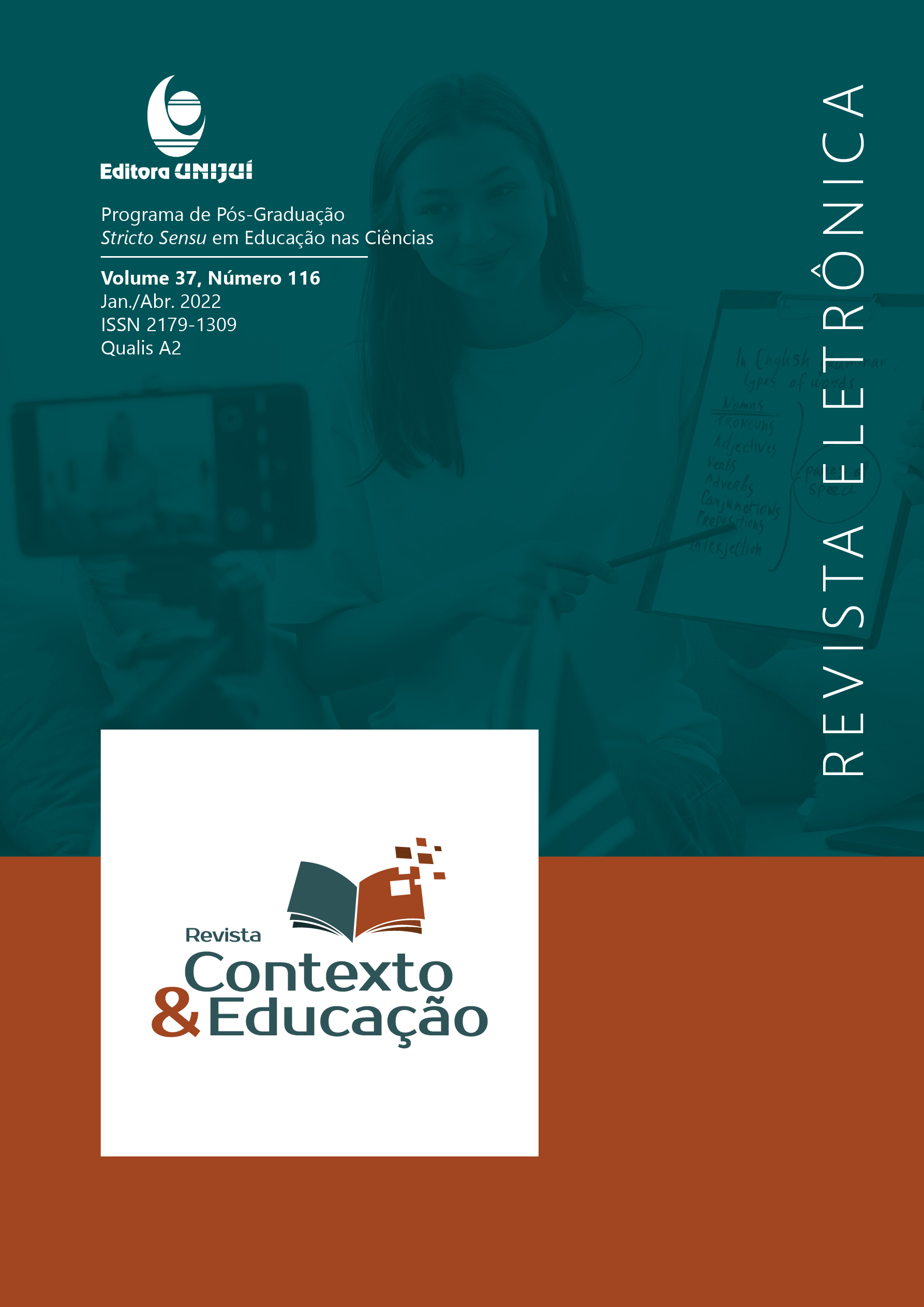AULAS VIRTUALIZADAS NO ENSINO SUPERIOR: AINDA PRECISAMOS DO CORPO PARA ENSINAR E APRENDER?
VIRTUALIZED CLASSES IN HIGHER EDUCATION: DO WE STILL NEED THE BODY TO TEACH AND LEARN?
DOI:
https://doi.org/10.21527/2179-1309.2022.116.12595Keywords:
Ensino, Corpo, Ensino Superior, Tecnologias DigitaisAbstract
Esta pesquisa qualitativa investigou o lugar do corpo no Ensino Superior, a partir da análise do discurso de estudantes e professores de graduação que, em 2020, experimentaram aulas virtualizadas no período da pandemia de COVID-19. O contexto de estudo foi uma instituição de Ensino Superior do RS/Brasil. As informações foram coletadas com 245 estudantes e 40 professores, por meio de um questionário elaborado no Google Forms. Em relação ao lugar do corpo nas aulas da graduação, constataram-se compreensões diferentes, que transitam entre a possibilidade de renúncia ao encontro físico e presencial, como no caso do ensino dos conhecimentos teóricos, e as que reclamam da ausência corporal, principalmente, em se tratando do conhecimento construído em aulas práticas, nos laboratórios de ensino e na interação entre estudantes e professores. Conclui-se que ainda há lugar para o corpo no Ensino Superior e que aprendemos na relação com o outro e por meio dos sentidos corporais. Negar o corpo é colocar-se na contramão da essência da existência humana, pois somos corpo e nos fazemos presentes no mundo a partir dele.
Downloads
Published
How to Cite
Issue
Section
License
By publishing in Revista Contexto & Educação, authors agree to the following terms:
All works are published under the Creative Commons Attribution 4.0 International License (CC BY 4.0), which allows:
Sharing — to copy and redistribute the material in any medium or format;
Adaptation — to remix, transform, and build upon the material for any purpose, even commercially.
These permissions are irrevocable, provided that the following terms are respected:
Attribution — authors must be properly credited, a link to the license must be provided, and any changes made must be indicated.
No additional restrictions — no legal or technological measures may be applied that legally restrict others from doing anything the license permits.
Notices:
The license does not apply to elements that are in the public domain or covered by legal exceptions.
The license does not grant all necessary rights for specific uses (e.g., image rights, privacy, or moral rights).
The journal is not responsible for the opinions expressed in the articles, which are the sole responsibility of the authors. The Editor, with the support of the Editorial Board, reserves the right to suggest or request modifications when necessary.
Only original scientific articles presenting research results of interest that have not been previously published or simultaneously submitted to another journal with the same purpose will be accepted.
Mentions of trademarks or specific products are intended solely for identification purposes and do not imply any promotional relationship by the authors or the journal.
License Agreement (for articles published from October 2025): Authors retain the copyright to their article and grant Revista Contexto & Educação the right of first publication.


